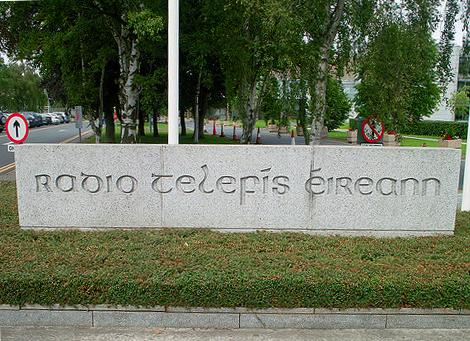Why the crisis in RTÉ was inevitable

RTÉ was bound to lose the run of itself - and it did. By Vincent Browne.
There might have been an inevitability about the crisis at RTÉ. There has been no external director general at the station since 1968, when Kevin McCourt quit, having been hand-picked by Sean Lemass in 1963.
Not since the late 1960s had there been any critical appraisal of journalistic standards, practices and output at the station. The damage done by the censorship imposed by Section 31 of the Broadcasting Act over almost a quarter of a century was never repaired.
Then, with the advent of commercial broadcasting in this state, there was an intensification of a ratings culture, which further undermined editorial standards.
All this was added to a sense of entitlement (to the €200 million licence fee annual subsidy), self-congratulation and hubris derived from the tag "public service broadcaster", as though RTÉ editorial people alone could be trusted to present news and current affairs fairly and accurately, unimpeded by improper pressures.
That self-congratulation is regularly on display in the publication of ratings reports.
Invariably, we are reminded that RTÉ Radio One has more listeners than any other station operating in the state - as though it were likely to be otherwise, given the huge advantage it derives from being the only broadcaster in the state for so long, its massive subsidy (which gives it an unfair advantage over competing stations), and the fact that there are only two other national radio stations (excluding Lyric FM and Raidió na Gaeltachta). The erosion of RTÉ's listenership where there are strong local commercial stations is never acknowledged publicly - or, I suspect, privately.
It was bound to lose the run of itself, and it did so, not just in relation to the Fr Kevin Reynolds libel, but otherwise, too. The breach of competition laws, as revealed by the Competition Authority in its enforcement decision last January on RTÉ's advertising sales practices, is an instance of this, and I hope to return to it in a future piece.
The station's negotiating practices on third-party broadcasting rights, to block competing TV stations, is a further instance. The massive salaries paid to presenters to deter them from defecting to the competition is another. This is actually also an instance of reckless incompetence on the part of RTÉ management, as even a fraction of the fees paid could not have been matched by a competing station.
There are further questions about editorial standards. RTÉ's concentration on crime is an obvious example. The television programme Crimeline, for instance, regularly broadcast reconstructions of violent crime - a practice which conveyed the impression that such crime was rampant. The programme was sponsored by an insurance company.
There has been no internal appraisal or critique of the almost uniform line pursued by interviewers and programme-makers, which happens to conform snugly to the "official line" on the central issues of our society. This includes the absence of any alternative to austerity, primarily affecting low income earners; the "impracticality" of any discussion about equality; the indifference to equal gender representation on programmes; the lack of interest in the distribution of wealth, income, power and influence, which directly affects health and longevity.
For instance, I detected no coverage or comment last week (or the previous week) on the publication of the startling insight into deepening inequality conveyed in the Survey on Income and Living Conditions (SILC) report published by the CSO on 27 March. Perhaps I missed a news item or a feature, but there was nothing like the coverage that would seem proportionate to the significance of the revelations.
The occasion of Mary Raftery's death last January was a chance to recall the great programmes she did for RTÉ on clerical sexual abuse and its cover-up. I heard no mention of the remarks by her husband, David Waddell, and her close work collaborator and friend, Sheila Ahern, on the difficulties that RTÉ placed in the way of her doing that work.
Some great journalism has been done by RTÉ. It still has some of the best presenters, interviewers and journalists the country has known.– I have in mind the likes of Bryan Dobson, Pat Kenny, Richard Crowley, Miriam O'Callaghan, Seán O'Rourke, John Bowman, David Murphy, Claire Byrne, Aoife Kavanagh (in spite of the fiasco of the Kevin Reynolds story), George Lee, Mary Wilson and many others.
Some of the managers have also been outstanding, notably Ed Mulhall (again, in spite of the Reynolds fiasco) and Noel Curran (the current director general, who was an outstanding editor of Prime Time; his rating as director general is too early to determine).
But such excellence can't hide the fault lines and the PR-driven timing of the "restructuring". The new journalism guidelines (about which, more later) won't make those go away. {jathumbnailoff}
Image top: infomatique.
